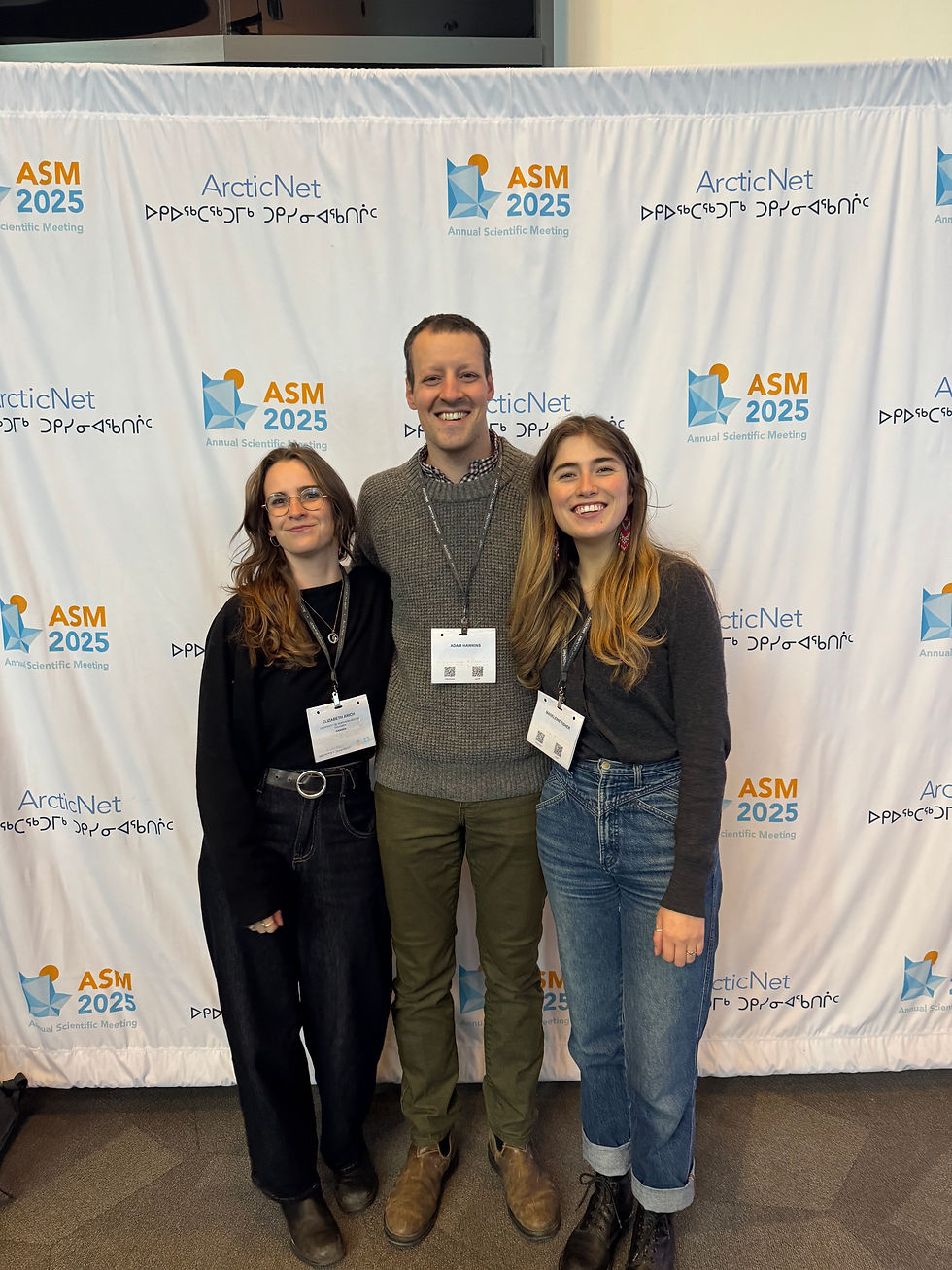UArctic Conference @ the University of Aberdeen (August 27-29, 2017)
- ECRG

- Sep 12, 2017
- 2 min read
As written by Devin Waugh.
After spending a hazy Friday walking around Aberdeen trying to stay awake and shake the jet lag, the conference kicked off on Saturday with a bus tour around the surrounding countryside to see a few of the sights. Drum Castle was a highlight where we were treated to a behind the scenes look at some documents from the 1300s, followed by a three part live cello composure in the beautiful old library in the original part of the castle (also 700+ years old!). After all the participating scholars from across Europe and North America had made their way into town, the conference got underway the next day with a plenary lecture about long term ecosystem dynamics in the Arctic by Dr. Richard Bradshaw from the University of Liverpool. The conference was hosted in the old library of King’s College, the original university campus from the 1400s at the heart of the modern University of Aberdeen’s campus. After the plenary lecture, the first session titled “The Anthropocene in the Arctic”, began in the afternoon. The day concluded with an evening reception meet and greet on the 7th floor of the beautiful new library in the centre of campus, with panoramic views of Aberdeen and the coast. The next day the sessions continued with second Anthropocene in the Arctic, along with Education in the North, People and Reindeer, Health Care in the North, and Livelihood, Development and Culture Change. I presented my research on Inuvialuit TEK of beluga in Tuktoyaktuk in the morning, and had an enjoyable questions and answer period with a number of scholars that had worked in the region. That evening, the participants were treated to a celiedh (kay-li), basically a Scottish party with traditional music and dancing. We enjoyed a delicious multicourse meal of several traditional dishes (including haggis, delish), followed by live music and guided group dances. The conference finished up the next day with a morning sessions, including Rights, Rhetoric and International Relations, Craft, Skill and Environment, Living with the Weather, and The City in the North, with a send-off in the early afternoon. Overall, the conference was a great experience, and an excellent opportunity to network with our fellow arctic scholars in Europe that we might not otherwise get to meet as often at North American Conferences.





Comments